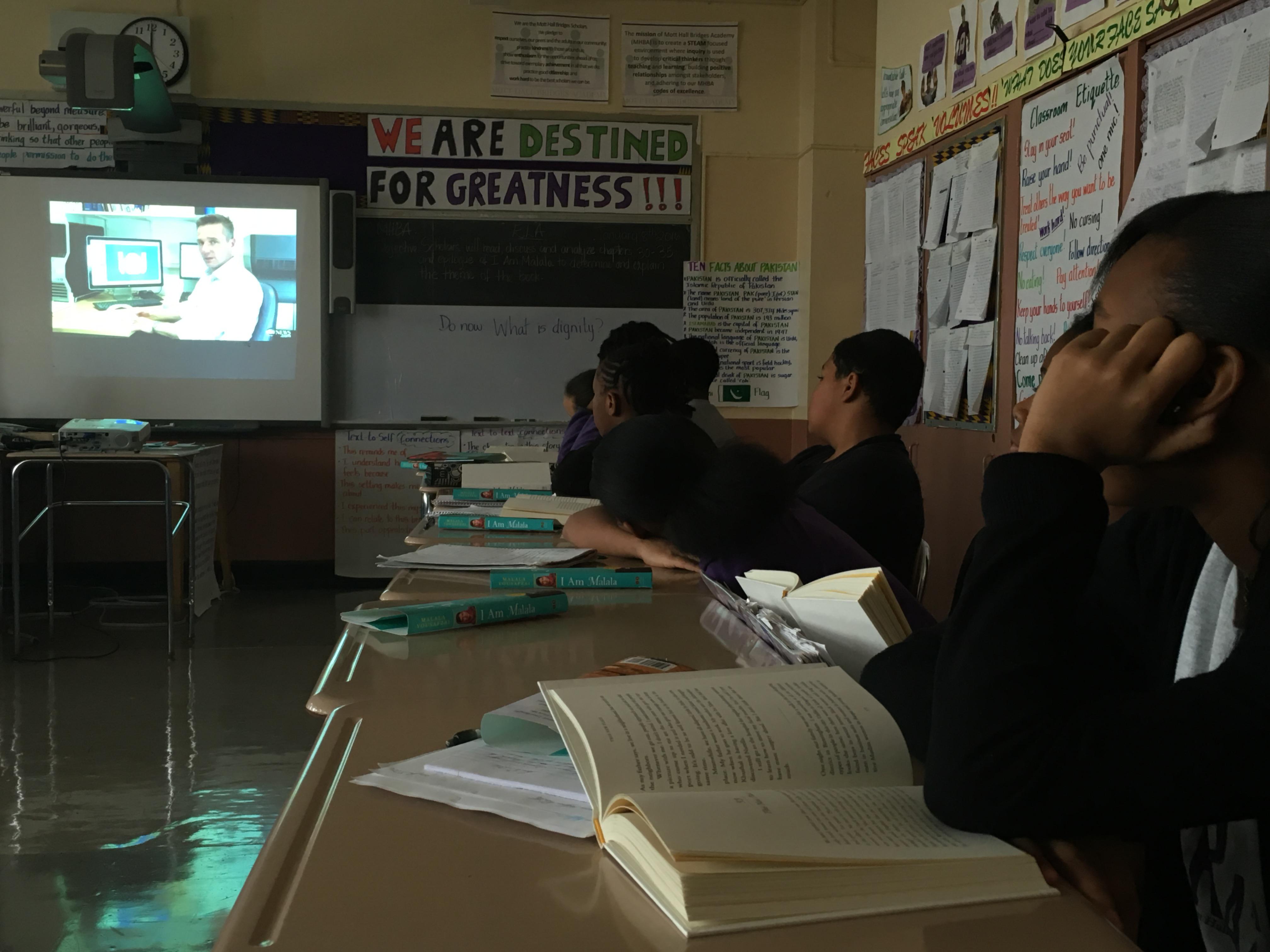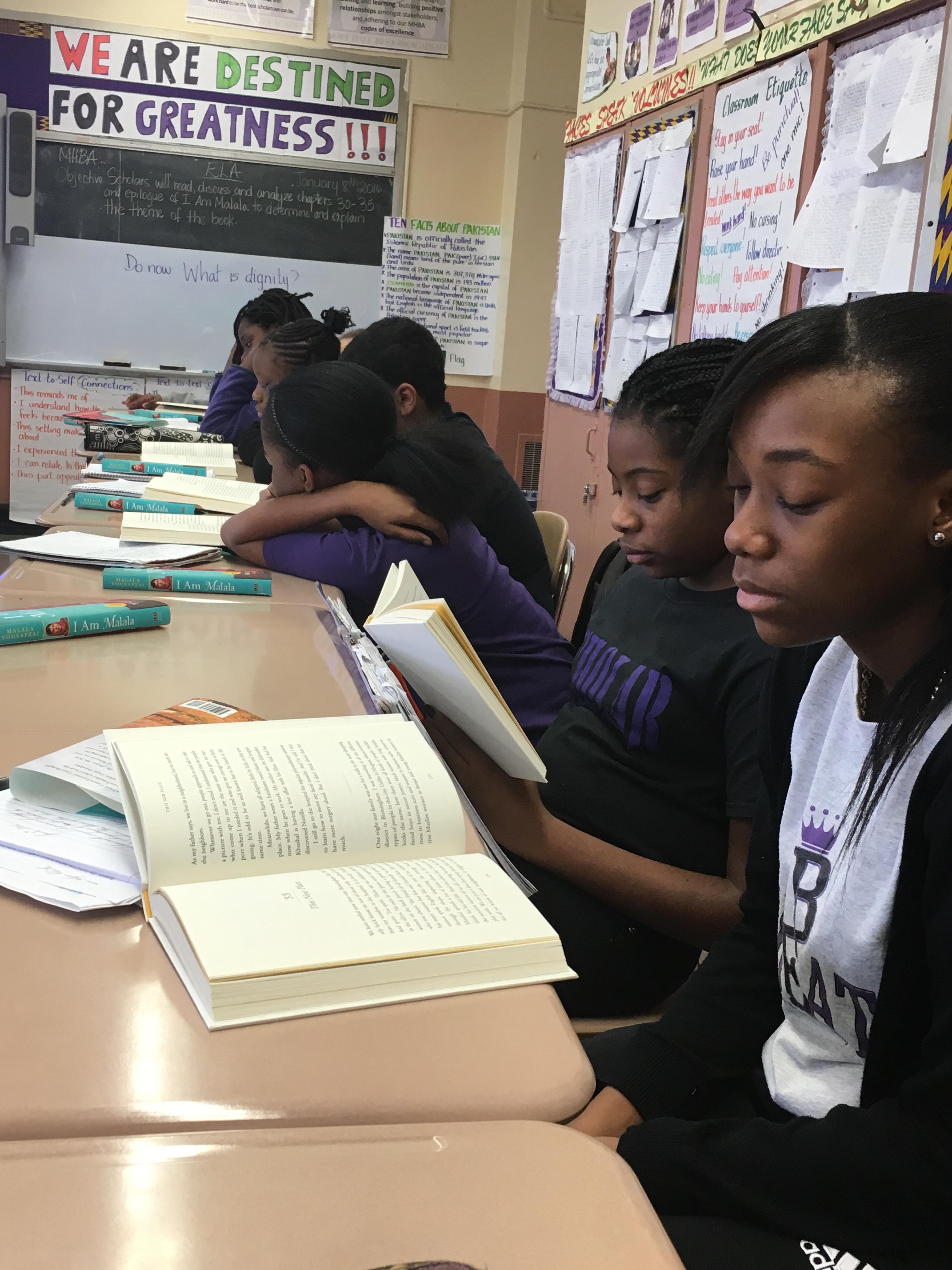Amélioration de l'éducation par les médias sociaux
Social media has opened the door for teachers to expand the classroom experience with unlimited access that goes beyond the walls of school building. Often times Facebook, Instagram, and Twitter are associated solely with connecting and communicating with friends and family, but it is also a platform to share information, make new discoveries, and shape the narrative that tells a story. In a great example, this past January, Julia DeCoteau 7e grade teacher at Mott Hall Bridges Academy, was able to successfully execute a non-fiction unit of study based on the book, “I am Malala”, through social media. Written by Mala Yousafzai, this is the story of a remarkable young woman who was nearly assassinated because she advocated for girls to have access to education in areas like Pakistan.
Ms. DeCoteau believed the scholars would be able to empathize with Malala’s story and make connections because of their own experiences with daily violence and lack of equity, that exist in a poor community such as Brownsville, Brooklyn.
Prior to beginning the unit, there were many challenges presented that included loss of funding impacting the purchasing of the ‘I am Malala’ books; lack of knowledge of a patriarchal society; limited understanding regarding communities outside of Brownsville. This made social media an essential resource in teaching the text because Ms. Decoteau was able to request 40 books on www.Donorschoose.org, an online website that allows the public to donate to projects uploaded by schoolteachers that are in need of funding. After posting the link for donations on our Mott Hall Bridges Academy Facebook page, the project was funded within a week and the books were delivered via Amazon.
To build context and make connections to the scholars prior knowledge, the use of TED Talks that included Shiza Shahid and Ziauddin Yousafzai, Malala’s father helped to provide a first person account of Malala’s mission and resilience despite the violence she encountered as a young woman. Throughout the four-week unit, photos were uploaded on Facebook and Twitter to share with the world how a community that has been labeled as disenfranchised children could use social media to give access information that would enhance the learning of Malala’s story.
The power of social media is that it allows for the connection and sharing of information, which gives our children in any classroom the access to experience a world beyond the limitations of their own neighborhood. It has also been a resource that has deepened their understanding through a perspective that will prepare our scholars to become compassionate, tolerant and empathetic, qualities needed to become global citizens.




Commentaires récents